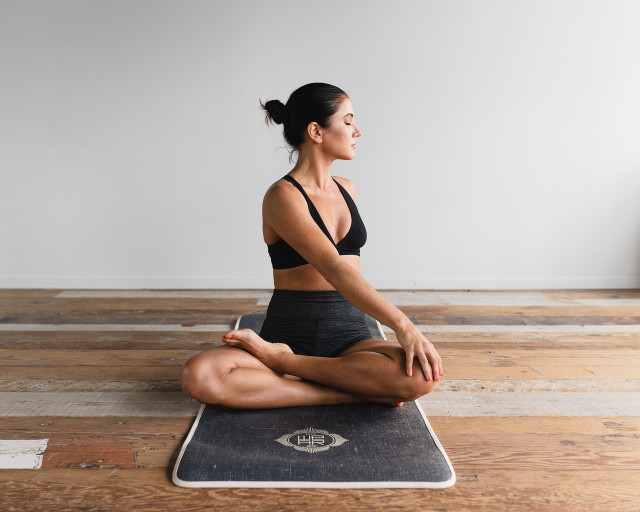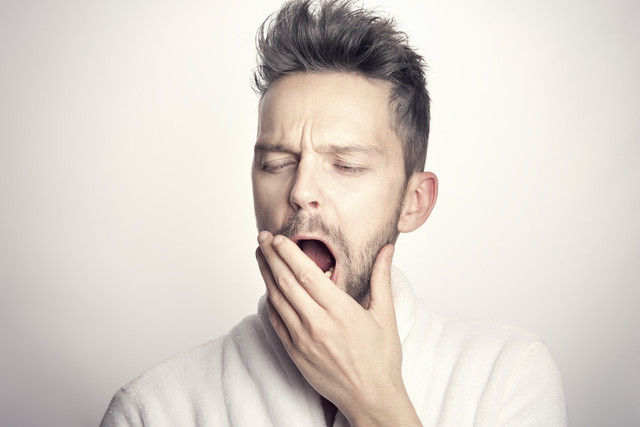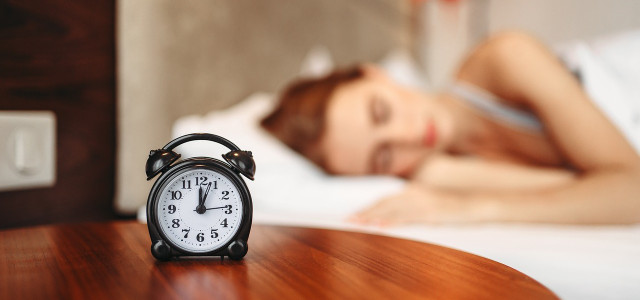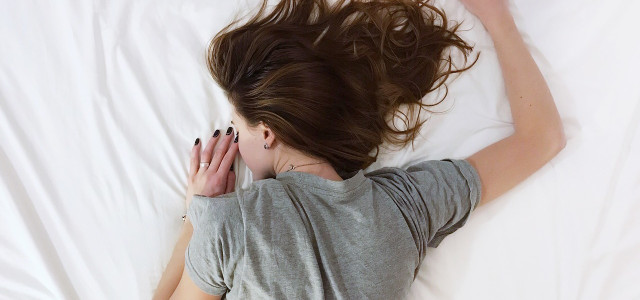Wondering how to become a morning person? It turns out that willpower is not the only secret for morning people — your DNA plays a role as well.
A morning person is someone who goes to bed early and wakes up early, and who finds themselves at their best in the morning as opposed to the afternoon or evening. Morning people typically find it easy to wake up early in the morning and they have the most energy during that time.
There seems to be a sort of societal pressure to figure out how to become a morning person, as it is often viewed as a way for us to be more productive. Whether the end goal is increasing productivity at work or fitting more activities within one day, morning people seem to have a slight advantage compared to those who struggle to wake up.
Believing that morning people have some special superpower — or at least a lot of willpower — compared to others, may not be so true after all. Some people are, by nature, more productive in the morning and others are more productive at night. This is known as a chronotype, a trait with a genetic basis. In this article, we’ll give you some tips on how to become a morning person as well as some insights on the different chronotypes so that you can adapt yours to your daily needs.
How to Become a Morning Person



(Foto: CC0 / Pixabay / Derekpics)
There are certain things you can do in order to alter your schedule to make getting up in the morning a bit easier.
- Set a sleep-wake goal: Set a wake and bedtime goal according to your personal sleep need (try to aim for about eight hours of sleep). If it is very different from your current sleep schedule, you can gradually start shifting the time you go to bed and when you wake up by 30 minutes every few days. This will help you fix your sleep schedule and adapt to your new goal easily.
- Stay away from ‘blue light’ before you go to bed: Avoid TV, computer, or phone screens within the last hour or two before you go to bed. Just like we feel more energized when the sun is out and more tired when it gets dark, artificial lights such as those in screens confuse your body and your biological clock. By staying away from the so-called blue light, your body will slowly start getting ready for bed and it will be easier for you to fall asleep at your set bedtime.
-
Get into a nighttime routine: Once you have a sleep-wake goal, get into a nighttime routine that works for you and stick to it. By doing so, your body will start getting used to a consistent bedtime and you will get into the mood for sleep naturally. Nighttime routines can help you relax and they are a great way to help you fall asleep. Here’s a list of things you can include on your nighttime routine:
- Mindfulness meditation and breathing exercises
- Bedtime yoga, with yoga poses for better sleep
- Read something relaxing, such as poetry or a novel
- Listen to relaxing music
- Avoid hitting snooze: This is a big deal if you want to push yourself to become a morning person. For those who aren’t a morning person by nature, hitting the snooze button can be a big mistake. It may allow you to fall into a deeper state of sleep, making it even harder to get up.
- Move your body: If you struggle to fully wake up and be alert in the morning, exercise can help you get over your morning grogginess. On top of that, morning workouts have many benefits, such as helping you boost your energy levels and increasing your quality of sleep at night.
- Be mindful about your caffeine intakes: Do you need your daily dose of caffeine to make it through the day? If that’s the case, perhaps you need to revisit your coffee habits, because caffeine can stay in your bloodstream for up to 10 hours. If you are trying to sleep earlier and become a morning person, you may want to avoid caffeine during the second half of your day. You can also try some natural ways to get caffeine out of your system if you had a little too much coffee on a certain day.
-
Establish healthy morning habits: If you have been more of a night owl in the past, becoming a morning person is no easy task. For this reason, having a morning routine and sticking to some healthy habits can work wonders for those who are not used to being an early bird. Here are a few ideas that can help you get started with your day:
- Hydrate: It is so important that you drink a lot of water in the morning, since your body needs to hydrate after all night without having water. Being hydrated in the morning will set the tone for the rest of your day!
- Stretch: Does your body feel a little stiff when you get up? Take 10 minutes to do a whole body stretch or even some yoga – your body will appreciate it throughout the day.
- Fuel your body: Get into the habit of making a healthy breakfast that will give you energy throughout your morning, such as wheat bread with vegan spreads, avocado toast, scrambled eggs, or vegan hash. If you prefer sweet breakfasts you could try making overnight oats, baked oats, or even vegan yogurt with fruit and homemade granola.
What is My Chronotype?



(Foto: CC0 / Pixabay / Sammy-Sander)
A chronotype is a person’s natural inclination to go to sleep at a certain time, and it varies depending on age and genetics, among other factors. Depending on your chronotype, your body leans toward performing better in the morning or at night, making it difficult for some to become a morning person.
You probably already know whether you prefer to wake up early or you’ll rather wake up late. However, there isn’t just early birds and night owls — instead, most people fall somewhere in between. A good way to figure out your chronotype is to take the online chronotype quiz by Dr. Michael Breus, a clinical phycologist and one of the top authorities of sleeping disorders in the United States. In the quiz, he describes four different chronotypes based on sleep-wake patterns seen in animals, which can help you get a better understanding of your sleep cycle and how that relates to your performance during the day. According to him, there are four different types of people:
- Lion: The lion chronotype is what we know as the early bird. These people wake up early and are more productive in the morning, but they struggle to keep up with tasks or social events at night.
- Bear: People with this chronotype tends to follow the sun. According to Dr. Breus, about 55 percent of the population fall in this group, and societal standards are built up around them — which may help explain the 9-5 workday.
- Wolf: These individuals are the night owls, who are about 15 percent of the population. They thrive late at night, and they struggle in the morning.
- Dolphin: He describes this group as those who are alert even when sleeping, and they are usually insomniacs.
Taking the quiz and learning your chronotype can help you get a general idea of your ideal sleep schedule and how to work around it, but keep in mind that it is just a guide.
Waking Up Early: Benefits & Drawbacks



(Foto: CC0 / Pixabay / 5688709)
Becoming a morning person can help you get a better quality of sleep at night, and early risers tend to fall asleep faster as well. Research shows that healthy adults who wake up early have a more positive state of mind than those who don’t sleep until late night. This can be due to a combination of good morning habits (such as having the time for a healthy breakfast, proper hydration, etc.), which leads to being well-rested, energized, and less stressed.
However, getting up early can also have some negative effects — especially if you aren’t getting enough sleep. Getting up early if you’re not used to it can cause your brain to lack of alertness; it’s easier to lose focus and therefore be less productive. Sleep deprivation can also lead to higher stress levels and therefore migraines and mood swings.
If you are trying to figure out how to become a morning person but you’re more of a night owl, keep in mind that making such a radical change will take you some time. And, if you are unable to sleep until late at night, waking up early might not be such a good idea until you progressively regulate your sleep schedule. Remember that everyone’s body clock is different, just like everyone has different needs and schedules to adjust to — just try to adapt to what’s best for you.
Read on:
- Seasonal Affective Disorder: How to Conquer Seasonal Depression
- How to Reduce Stress: 7 Ways to “Decelerate” Your Life
- 5 Reasons Why You Should Turn Off Your Phone
Important Information regarding Health-related Topics.
** Links to retailers marked with ** or underlined orange are partially partner links: If you buy here, you actively support Utopia.org, because we will receive a small part of the sales proceeds. More info.Do you like this post?








